 The “second transition” debate reveals that conflicted memories remain at the core of political legitimacy, transforming the 2017 elections into a stage where competing versions of truth, justice, and culture revive questions of the past that demand resolution in the present, writes Roberto Velázquez Quiroz (Pontificia Universidad Católica de Chile).
The “second transition” debate reveals that conflicted memories remain at the core of political legitimacy, transforming the 2017 elections into a stage where competing versions of truth, justice, and culture revive questions of the past that demand resolution in the present, writes Roberto Velázquez Quiroz (Pontificia Universidad Católica de Chile).
On Sunday 19 November 2017, Chile heads to the polls to elect a successor to President Michele Bachelet. In recent years, the ideological spectrum has seen a reorganisation of traditional forces, which had tended to gravitate towards the political centre.
Broad Front (Frente Amplio, FA), the new leftist alliance, has taken the most progressive path, with Beatriz Sanchez as the presidential candidate. The centre-left faction New Majority (NM), in which Christian Democrats and Communists agreed to strategic coexistence, exposes the fractures of the old politics stemming from the overthrow of Salvador Allende’s government in 1973. The coalition’s candidates, Alejandro Guiller and Carolina Goic, are putting the possibility of a unified project under strain by presenting different programs that target middle-class voters.
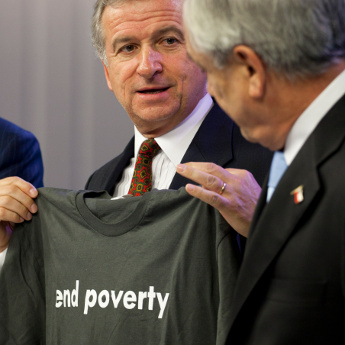
In this fragmented scenario, the liberal right represented by billionaire former president Sebastián Piñera pushes an agenda that highlights reconciliation and forgiveness in post-dictatorship politics. At a recent press conference, Piñera introduced an economic programme that intends to “[bring about] a second transition … that embodies the values of a developed nation with high levels of human capital, a better quality of life, and no poverty.”
Amidst antagonistic visions of past and future, Chile’s politics of memory is thus reopening the old wounds of the Cold War era.
Perspectives on the “Second Transition”
Piñera’s campaign presents a narrative that continues the right’s populist tradition of liberal modernisation. One distinctive element, however, is a historical argument defining economic growth and private investment as extensions of the political stability achieved when Patricio Aylwin became the first president of the transitional democracy in 1990.
Piñera’s ‘second transition’ denotes the revitalisation of a political centre that in the 1980s and 1990s “allowed the growth of an exemplary democracy that was admired and recognised as such around the world.” But this move must be placed in the context of the candidate’s personal history during the 1980s.
His involvement in the creation of the liberal-conservative party National Renewal (RN) preceded the 1988 referendum ended Augusto Pinochet’s rule, stretching back to his 1973 coup against Salvador Allende. The more reactionary path taken by the conservative wing, the Independent Democratic Union (UDI), diverged from RN’s decision to support a presidential candidate other than Pinochet in 1990. Nevertheless, in the aftermath of the transition UDI-RN political narratives joined forces to antagonise the new alliance of centre-left forces represented by the Concertación.
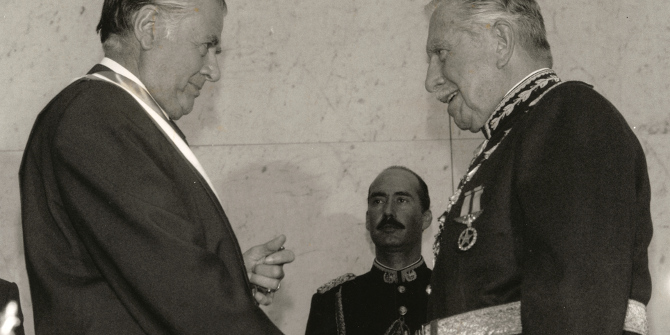
Amongst the most prominent leaders in RN, Andrés Allamand (Piñera’s Minister of Defense 2011-12) was instrumental in the rise of developmentalist debates targeting demobilisation of social actors to allow for implementation of top-down economic agreements. In 1999 Allamand noted that it was during his years as RN’s vice-president that he “understood that the key to the transition was RN’s liberal democracy and not the social-democratic reformism promoted by Christian Democrats.”
This criticism of the Christian Democratic Party had strategic value from the 1990s onward, when the political centre remained volatile after years of authoritarianism. By opposing public debates on the atrocities of the dictatorship, the RN aimed to establish a centre-right hegemony. The party’s legislation on transitional justice was deeply influential in the exclusion of social actors that rejected the legitimation of Pinochet’s legacy of economic privatisation and criminal secrecy.
Along the same lines, Piñera’s candidacy returns to historical disputes regarding the continuation of the Christian Democrat project of transition. The attempt to create a genealogical link to Aylwin’s government sheds light on ideological intentions.
In a recent debate, Goic criticised Piñera’s “appropriation of political identity” and expressed concern at the lack of recognition given to the Christian Democrat’s “historical authority on ideas of economic developmentalism and political stability.” For her, the ‘second transition’ corresponds to political ideals of cultural change that Alejandro Foxley, Aylwin’s Minister of Finance, had long promoted.
According to Foxley, Chile’s recent history demands a renovation of institutional credibility by promoting state investments that transition from economic modernisation to social cohesion. In time, this would bring stability to democratic processes without directly addressing the ideological conflicts deriving from the 1990 pact. But even if indifference to questions of truth, justice, and accountability continue to be the core storyline of the Christian Democratic tradition, the politics of memory – or forgetting – is still at the centre of contemporary politics.
At the other end of the spectrum we find the rise of the Broad Front, made up of social movements but lacking substantial representation in congress. Its campaign focuses on questioning the political authority of the centre-right and centre-left. Its programme articulates a narrative that undermines the idea of a ‘first transition’, which still dominates democratic life in 2017.
Emerging out of the student movements that delegitimised Pinochet’s privatisation of the education system, Broad Front’s leaders have accused plebiscitary politics of deepening social inequality and political apathy. Their analysis sees an absence of public discussion on the political responsibility of centrist pacts as reproducing neoliberal pragmatism and distancing victims of human-rights violations from democratic representation. From this perspective, discrediting the traditionally pivotal centre obviates the idea of a second transition in the future.
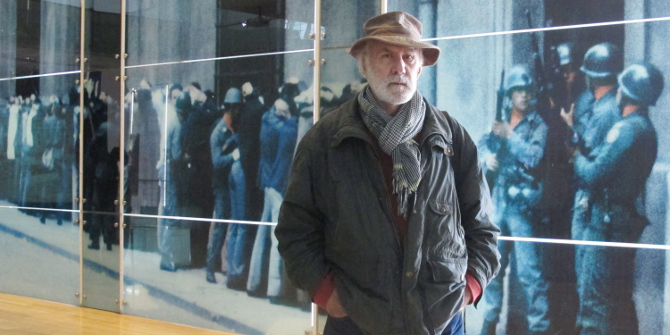
The Persistent Politics of Memory in Chile and Beyond
If memory is always negotiated between many provisional meanings that claim to grasp fragments of reality, our understanding of the past always has strategic, political, and ethical consequences for the present.
For some, the Chilean case exemplifies the radical reminiscence of unresolved disputes over memory, transforming democratic life from 1990 into an arena of permanent battle. The 2017 presidential elections cannot escape this structural condition insofar as “whether the [transactional transition] was a proactive effort at controlled political liberalisation from above or a strategy under pressure of economic troubles or declining political strength, the point was to negotiate or impose the fundamental rules of the game in the future.”
Thus, for post-conflict Chile the question for the politics of memory is not a matter of distributing blame across society but rather of who or what is entitled to speak in the present for a shared, damaged past. It is this issue that underpins persistent contestation of ideas of a ‘first’ and now a ‘second’ transition.
But Chile’s transitional justice is part of a wider landscape of post-Cold War politics. In fact, episodes of state terrorism in Europe and Latin America have a long history of militarism that connects different nations to transnational systems of repression. Research on the Inter-American Cold War has made it possible to trace the intelligence networks supporting anti-Communist dictatorships in Brazil, Chile, and Argentina since 1964. Embedded in these regional processes, disputes over memory emerged in the 1990s due to interconnected experiences of authoritarianism.
Chile’s concern for the historical validity of a ‘second transition’ speaks to the idea of “the other Cold War”, which extends beyond the limits of 1989 and into the realms of domestic moral economy. There is agreement as to the course of specific events in the post-dictatorship era, but not on how the truth of these events should be ideologically represented. And political negotiations within democracy tend to be contested by social actors that push for more inclusive narratives.
In a sense, post-Cold War transitions presented the challenge of accommodating the past in order to move on from it either by forgetting or by memorising demands for restitution, reconciliation, and identification of the hidden stories that were erased by institutional agreements.
In Chile, political claims around a ‘second transition’ echo the ‘first’ transition pacted between supporters and opponents to Pinochet’s brutal dictatorship. At that time, political negotiations agreed on the gradual restitution of institutional politics fractured by the outgoing regime – from 1981, via the 1988 plebiscite, to the 1990 elections.
Even though the historical consolidation of the transition has repeatedly been interrogated and analysed by politicians, intellectuals, activists, and victims of Pinochet’s vicious repression, current debates speak to the persistence of antagonistic visions of events from 1990 onwards.
Crucially, conflicted memories remain at the core of political legitimacy, transforming the 2017 elections into a stage where competing versions of truth, justice, and culture revive questions of the past that demand resolution in the present.
Notes:
• The views expressed here are of the authors and do not reflect the position of the Centre or of the LSE
• Please read our Comments Policy before commenting
 Roberto Velázquez Quiroz – Pontificia Universidad Católica de Chile
Roberto Velázquez Quiroz – Pontificia Universidad Católica de Chile
Roberto Velázquez Quiroz is an Adjunct Professor of History and Sociology at Pontificia Universidad Católica de Chile. His scholarly interests include the Cold War in Latin America, Latin American Historiography, Contemporary Social Theory, Cultural Sociology, Economic Sociology, and Historical Sociology. His fields of expertise and teaching experience range from courses on the Cultural Cold War, Modern Latin America, History and Contemporary Social Thought, and Sociology of Art.


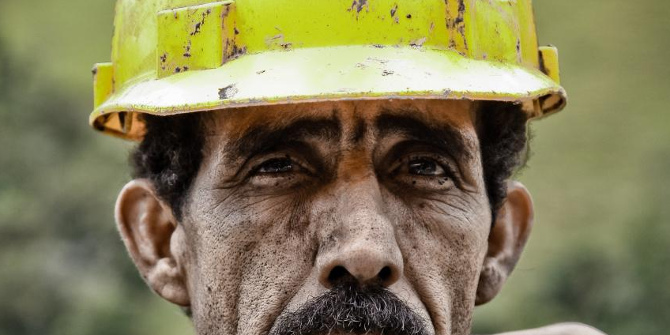
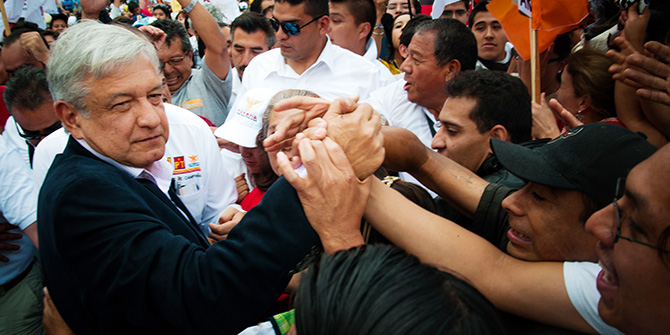
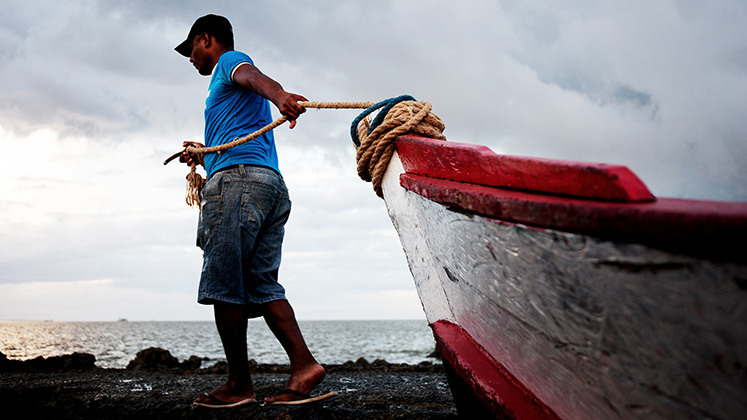
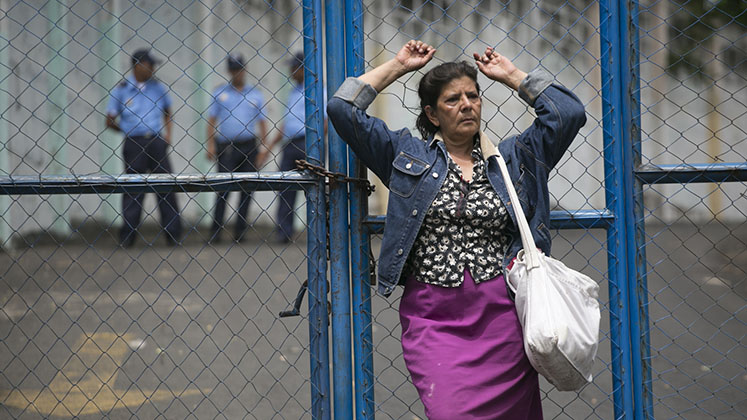
Thanks for this pretty insightful report about a social and political phenomenon that has been taking place during the last 27 years in my country.